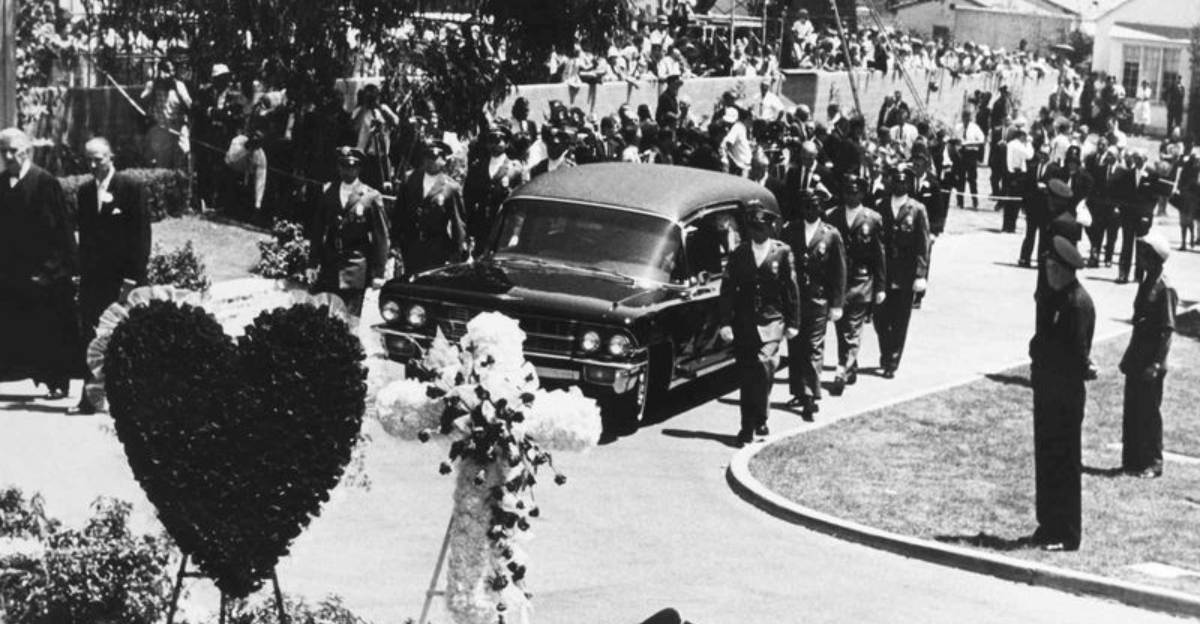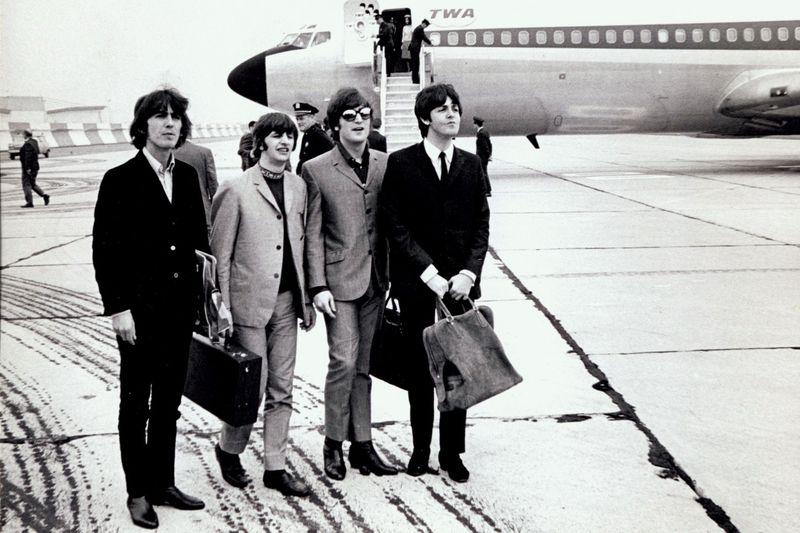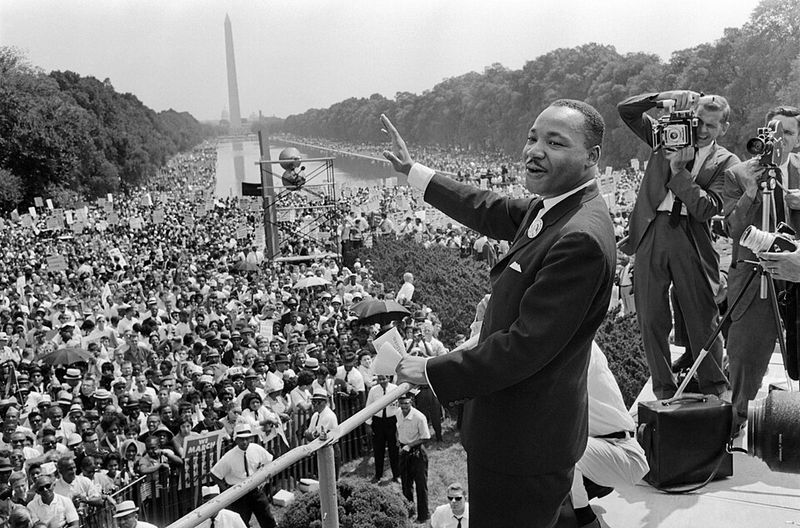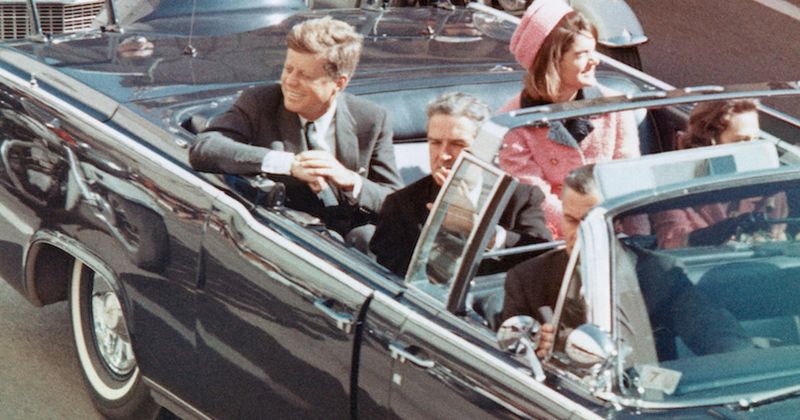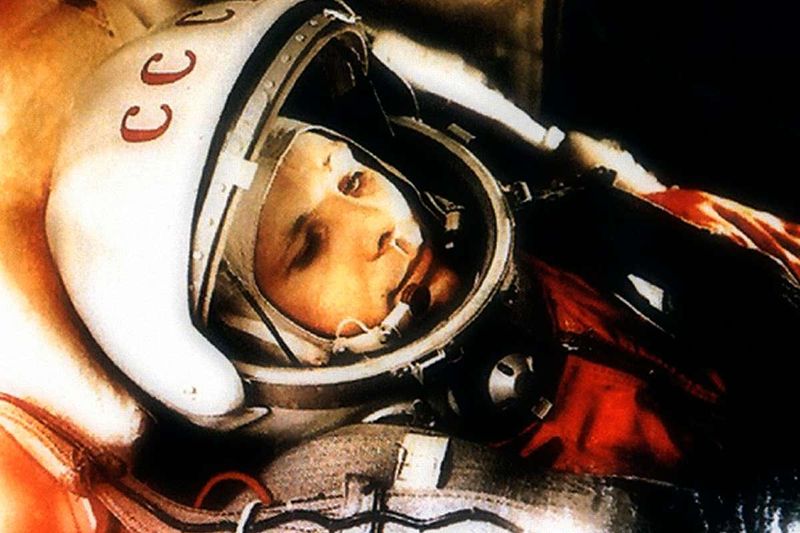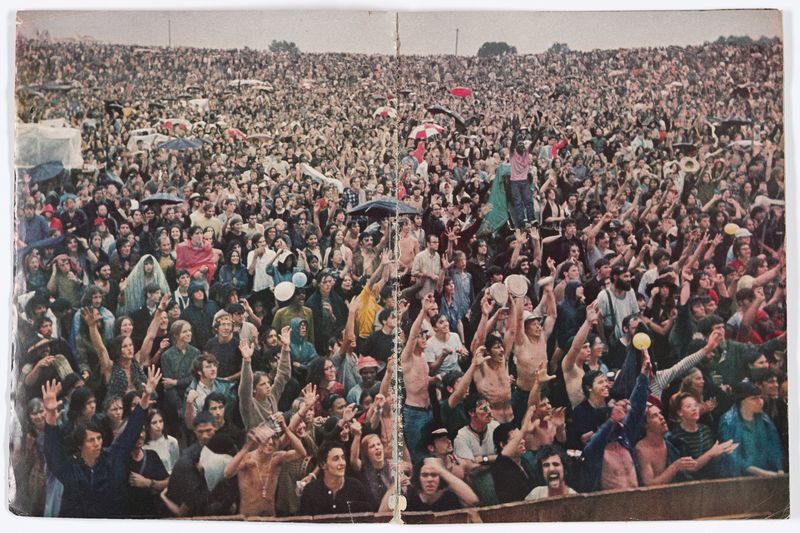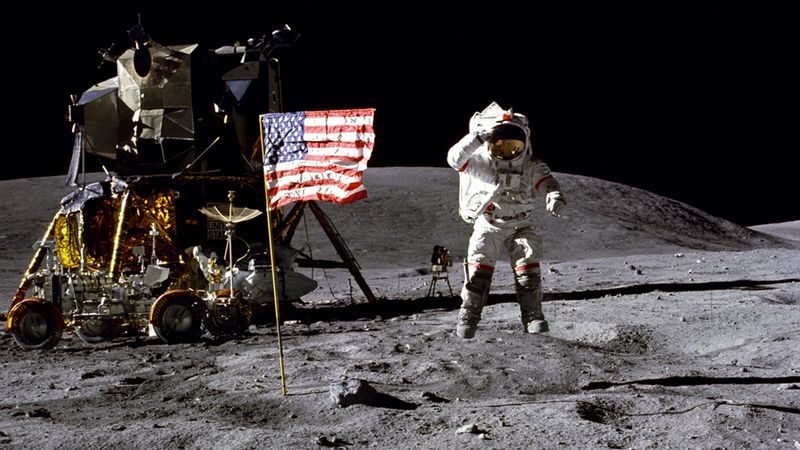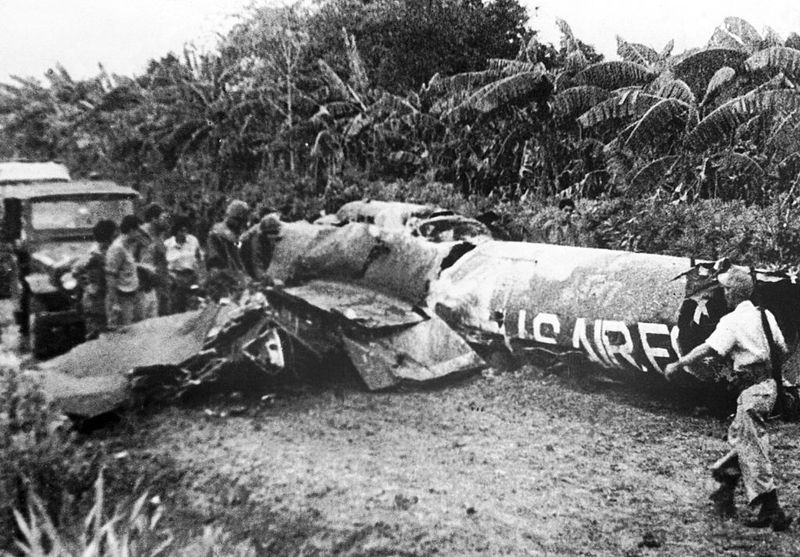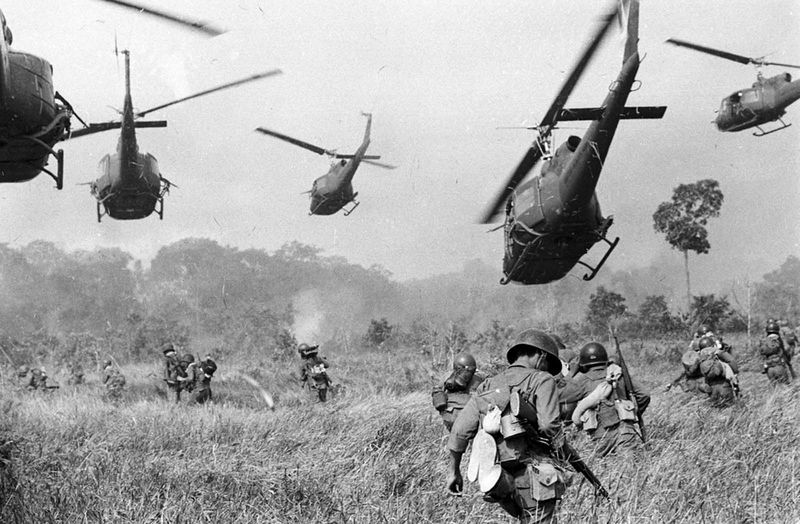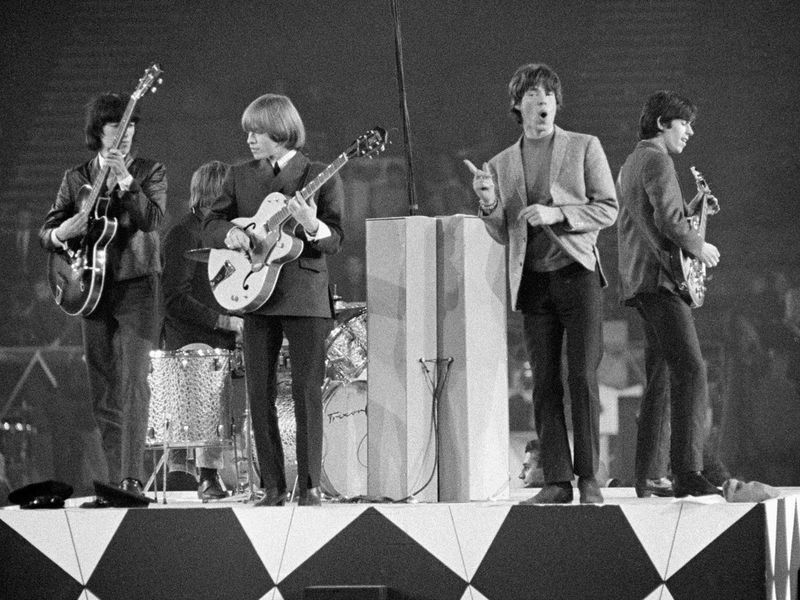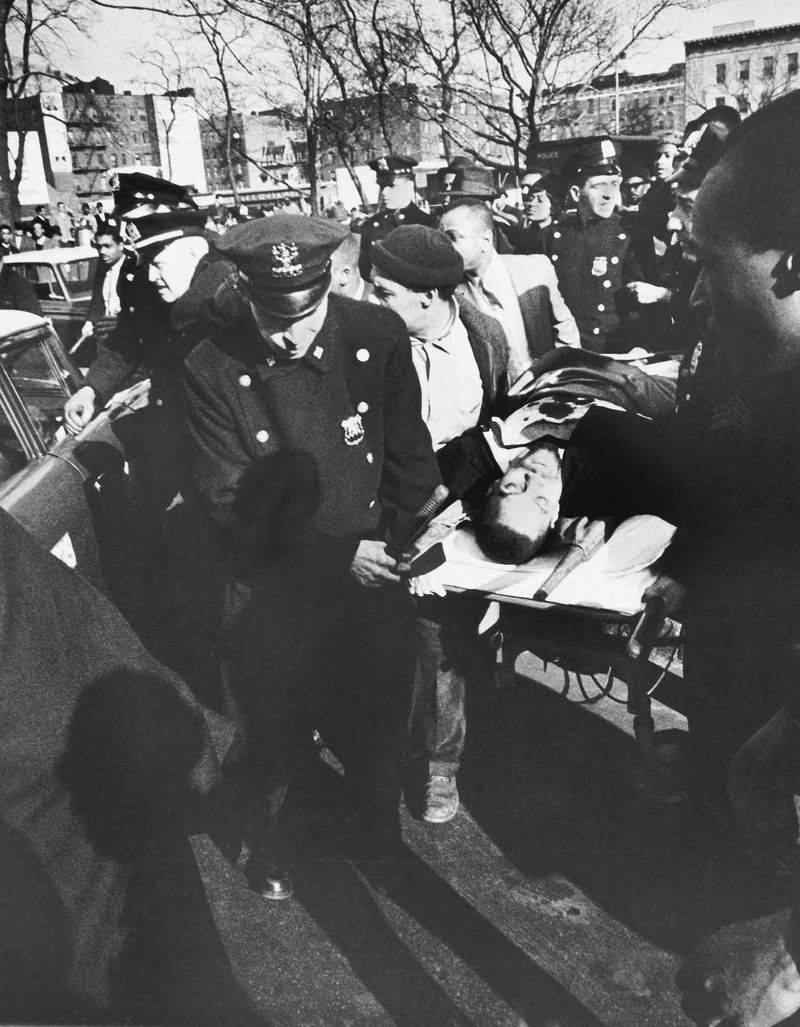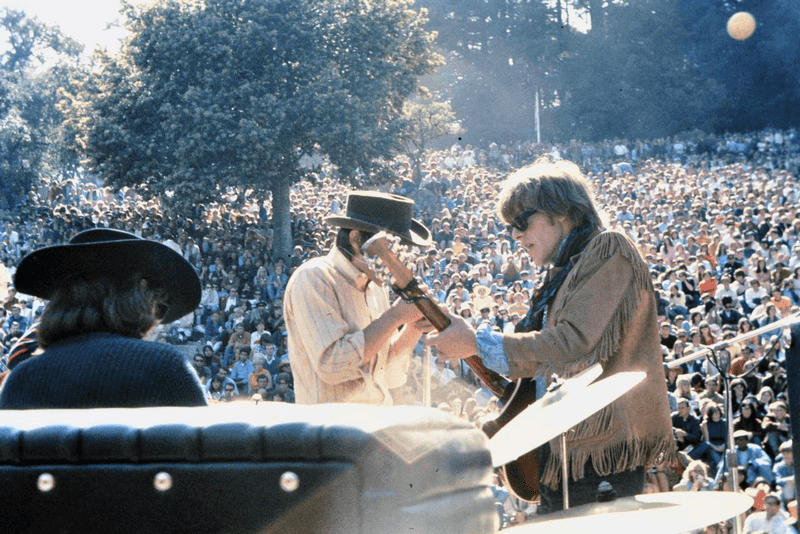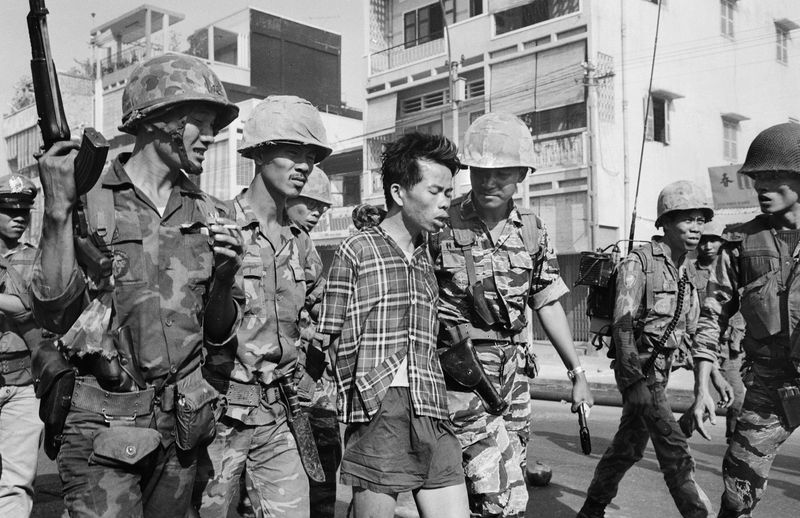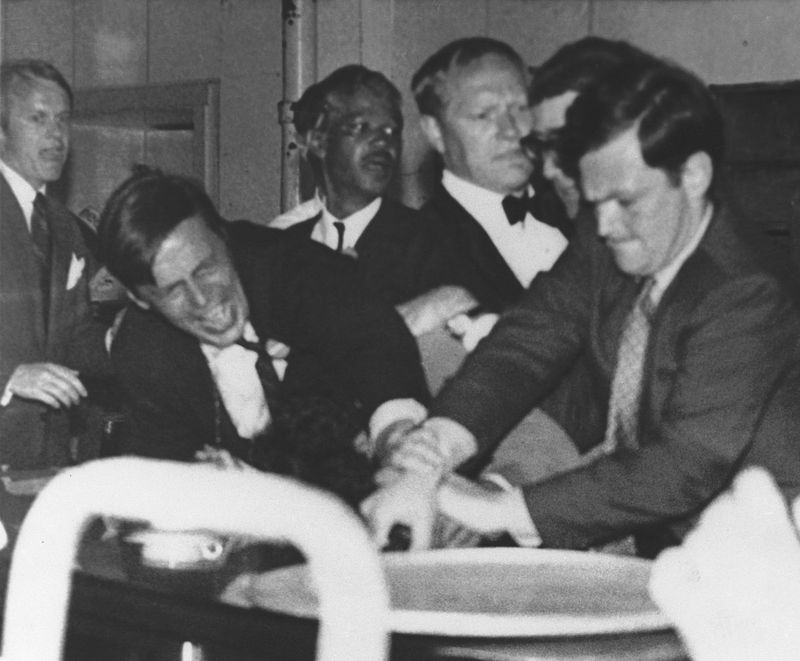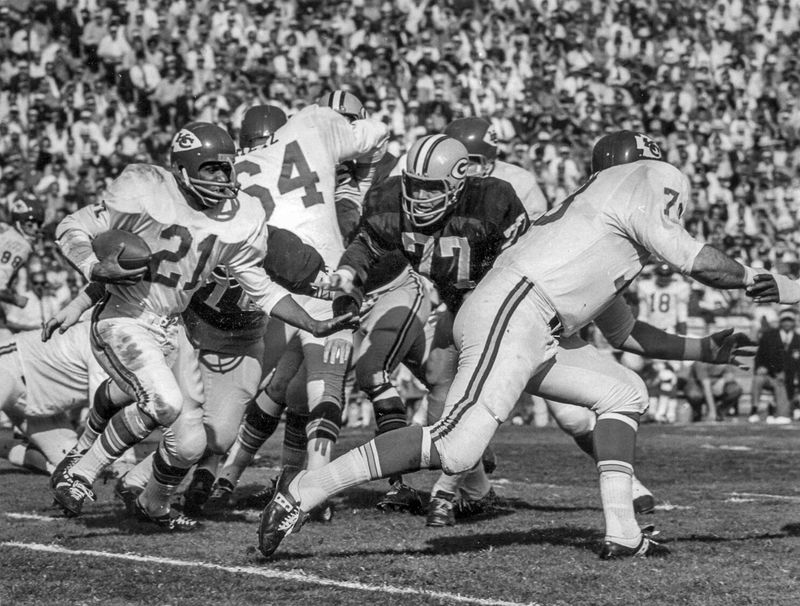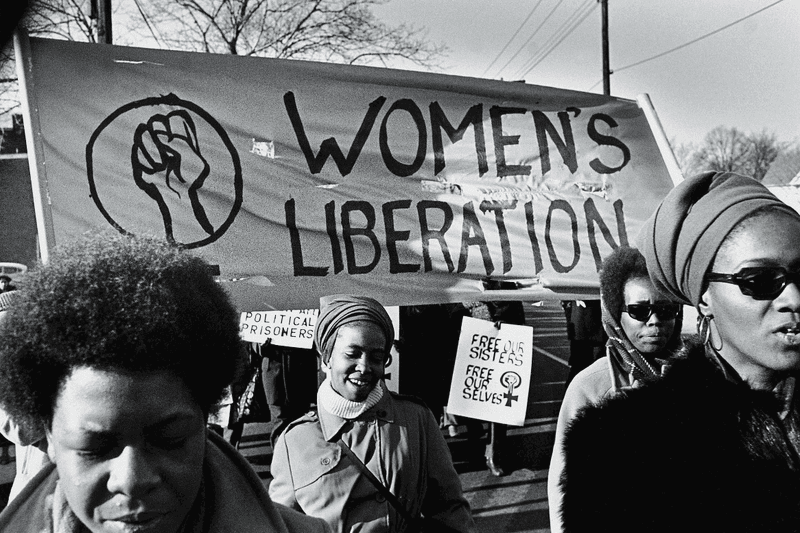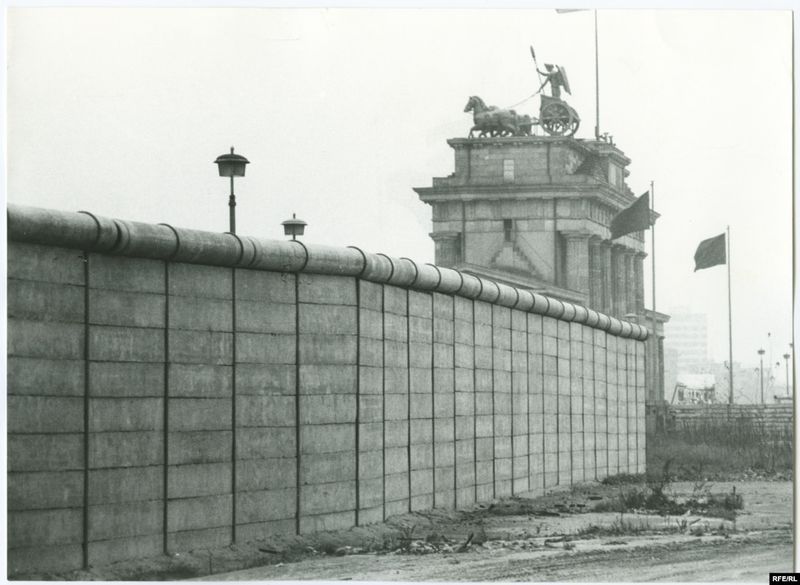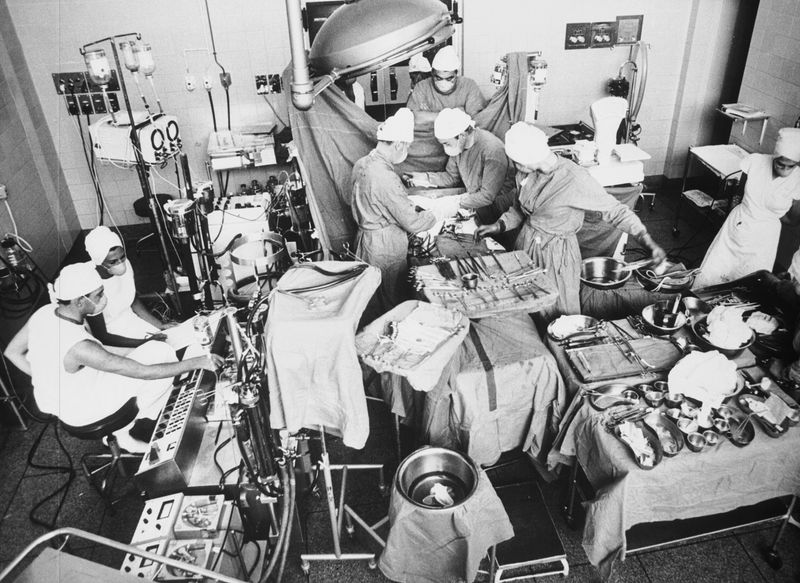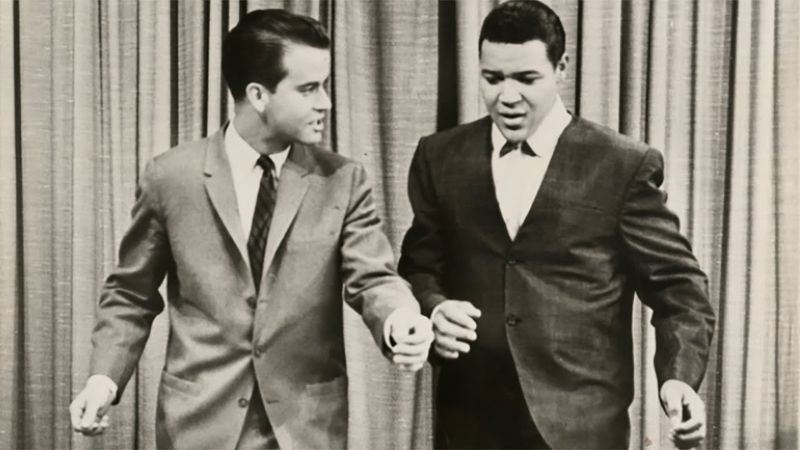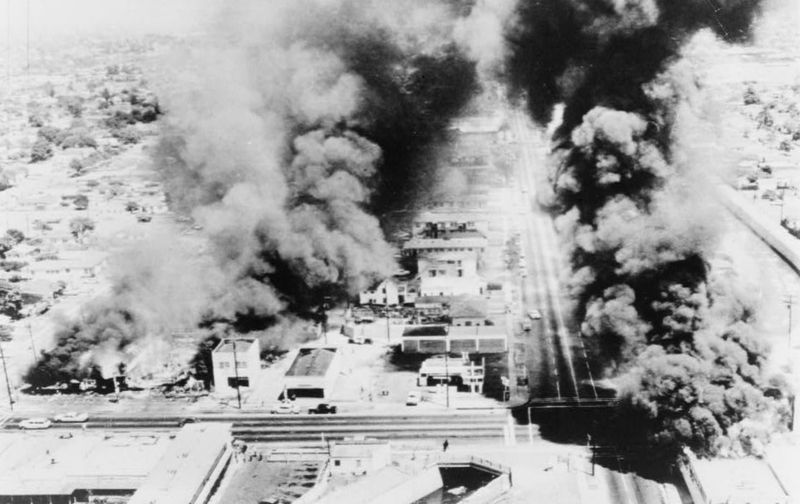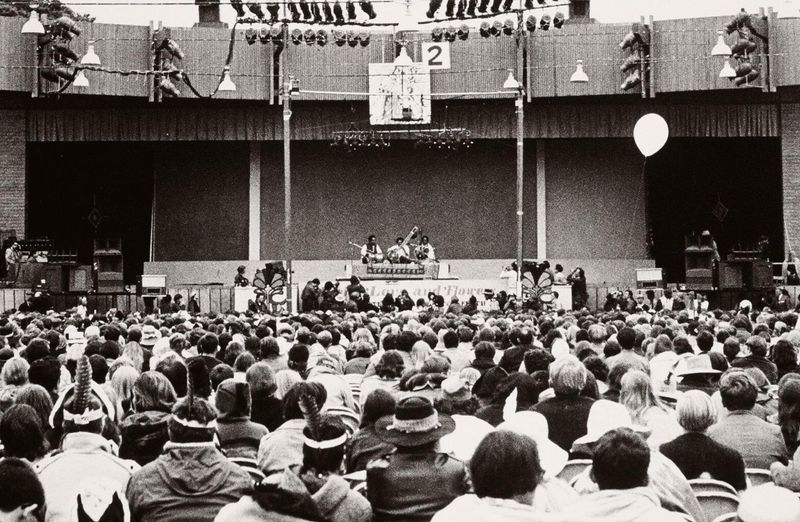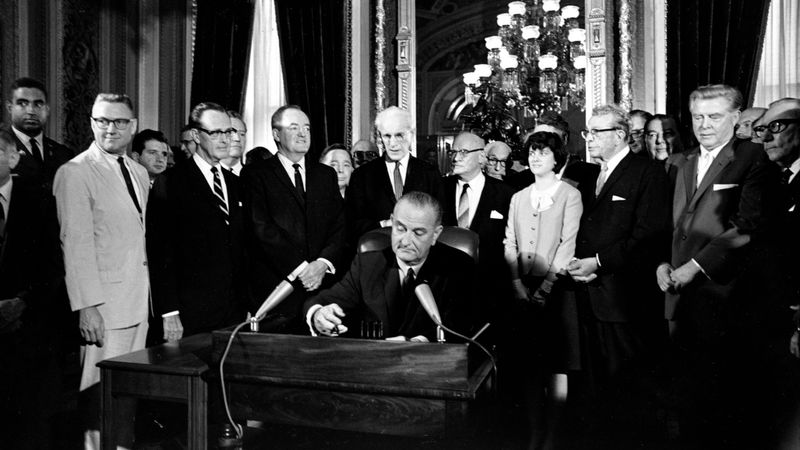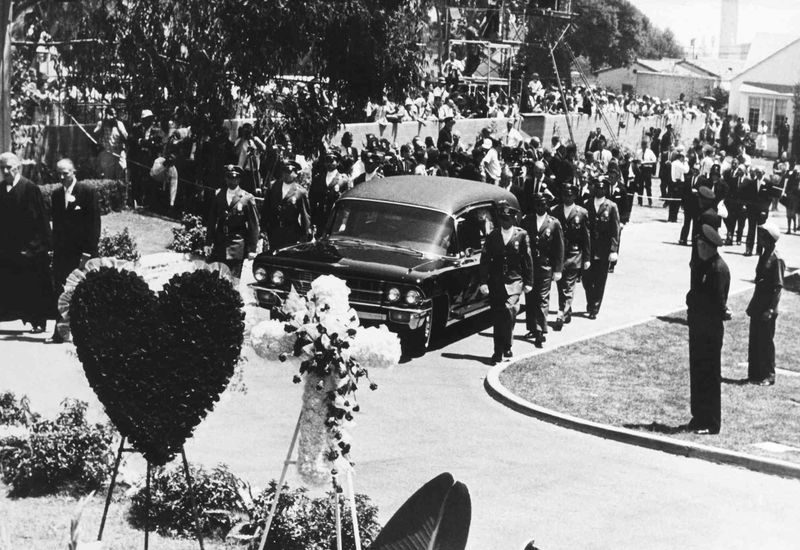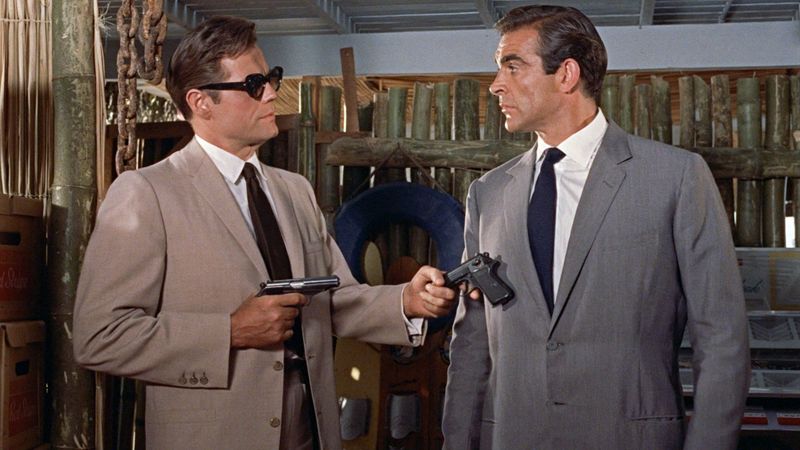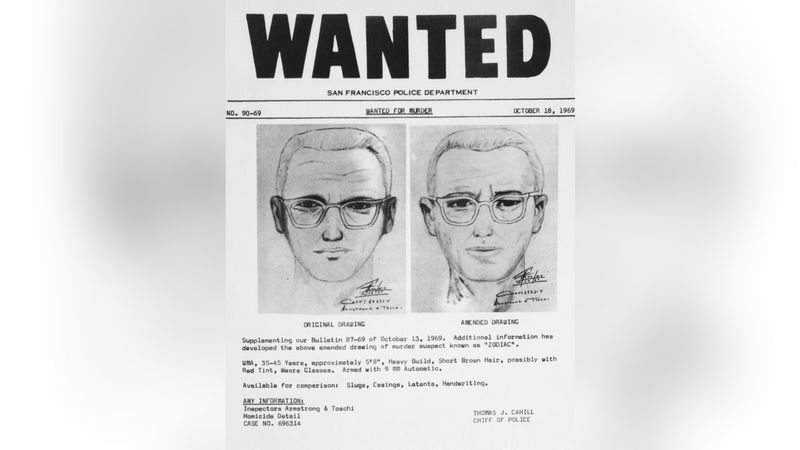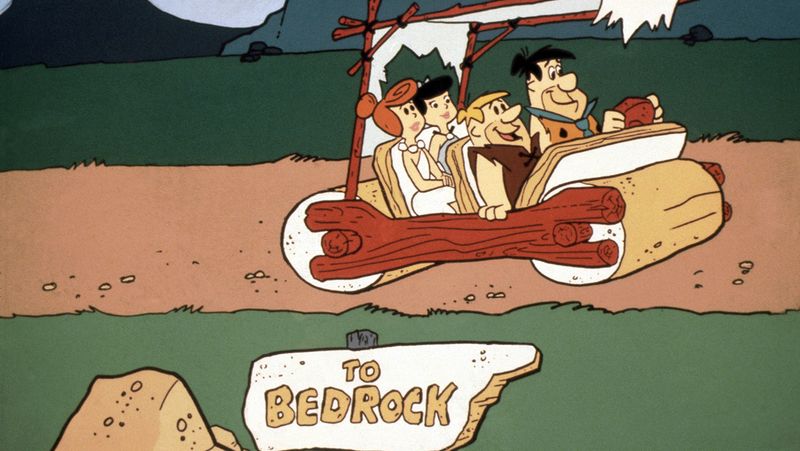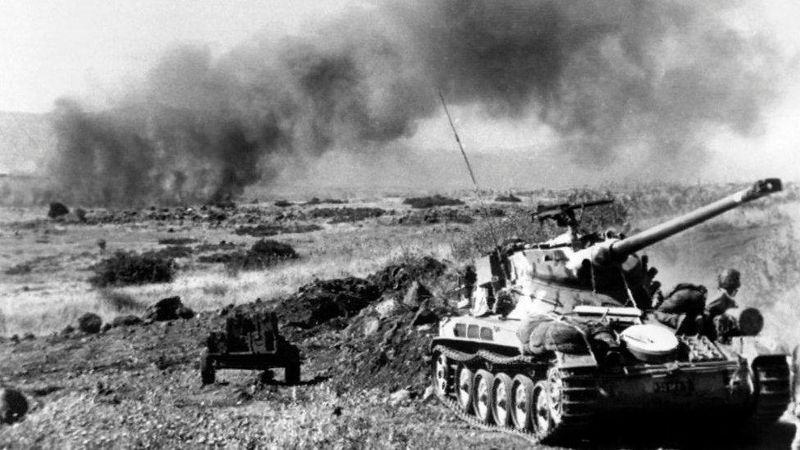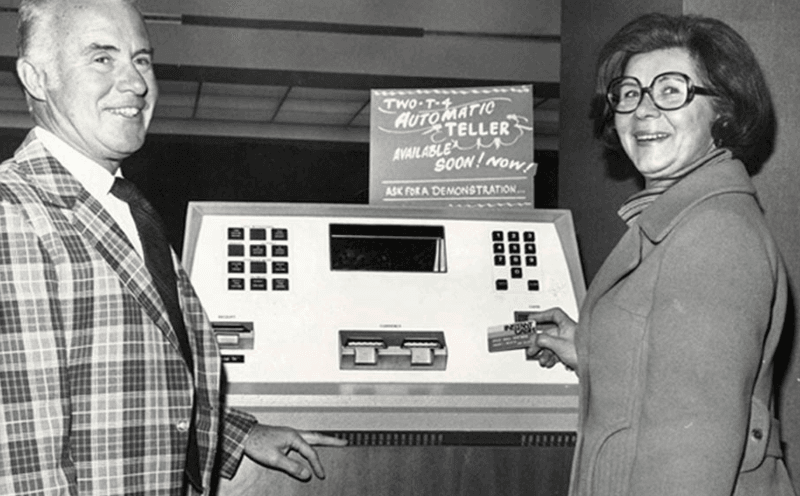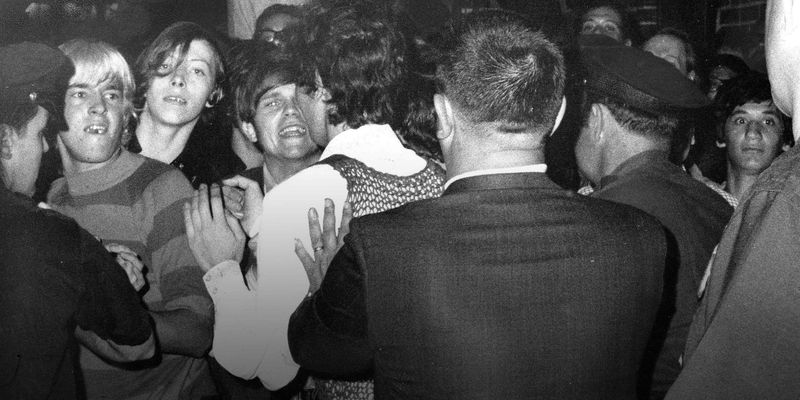The 1960s was a transformative decade filled with iconic moments and cultural shifts that continue to shape our world today. From groundbreaking achievements in space exploration to pivotal movements in civil rights, each event left a lasting impact. This blog explores 30 significant moments and memories from the 1960s, capturing the spirit of a decade marked by change, innovation, and revolution.
1. The Beatles Take America by Storm (1964)
With a sound that revolutionized music, The Beatles’ 1964 U.S. invasion began on The Ed Sullivan Show. Their electrifying performance captivated millions, marking the start of Beatlemania. Teenage fans screamed, cried, and fainted, creating a cultural phenomenon.
This iconic moment signaled a new era in music and pop culture. The Beatles’ influence extended beyond music, affecting fashion, attitudes, and lifestyles. Their appearance was more than entertainment; it was a seismic shift in cultural dynamics.
From mop-top hairstyles to catchy tunes, The Beatles’ American debut left an indelible mark on the 1960s and beyond.
2. Martin Luther King Jr.’s “I Have a Dream” Speech (1963)
On a sweltering August day in 1963, Martin Luther King Jr. stood before a massive crowd at the Lincoln Memorial. His stirring “I Have a Dream” speech painted a vision of racial harmony and equality. The cadence and eloquence of his words resonated deeply, sparking inspiration and hope.
King’s dream of a just society became a rallying cry for the Civil Rights Movement. His speech, filled with powerful imagery and unwavering conviction, transcended the moment, uniting diverse groups under a common cause.
A defining moment, it remains a cornerstone of America’s journey toward justice and equality.
3. The Assassination of John F. Kennedy (1963)
On November 22, 1963, the world was stunned by the assassination of President John F. Kennedy in Dallas, Texas. A vibrant leader, Kennedy represented a new era of American politics and hope for progress. His untimely death sent shockwaves nationwide, altering the course of history.
The motorcade through Dallas was meant to showcase Kennedy’s charm and charisma. Instead, it became a tragic and defining moment. The nation mourned as conspiracy theories and investigations unfolded.
JFK’s assassination left an indelible mark, shaping the political landscape and the collective psyche of a generation.
4. The First Human in Space (1961)
On April 12, 1961, Yuri Gagarin made history as the first human to journey into outer space. Aboard the Vostok 1, Gagarin orbited Earth, marking a significant milestone in the Space Race. His achievement captivated the world and spurred further exploration.
Gagarin’s mission symbolized human ingenuity and the relentless pursuit of discovery. The successful orbit showcased the Soviet Union’s technological prowess, intensifying the rivalry with the United States.
The first human in space, Gagarin became a global hero, inspiring generations to dream beyond the stars and explore the vast universe.
5. Woodstock Music Festival (1969)
In August 1969, over 400,000 people gathered on a New York farm for the Woodstock Music Festival. Spanning three days, this event epitomized the counterculture movement. Legendary performances by Jimi Hendrix, Janis Joplin, and The Who electrified the audience.
Amidst the music and mud, Woodstock became a symbol of peace and unity. The festival embodied the ideals of love and freedom, creating lasting memories for those who attended.
With its unique blend of art and activism, Woodstock left an indelible impression on the 1960s, marking a cultural milestone that resonates to this day.
6. The Civil Rights Act of 1964
July 2, 1964, marked a turning point in American history with the signing of the Civil Rights Act. This landmark legislation, championed by President Lyndon B. Johnson, outlawed discrimination based on race, color, religion, sex, or national origin.
The act was a triumph for the Civil Rights Movement, reflecting years of struggle, protests, and advocacy. It addressed issues of segregation and inequality, fundamentally altering the social fabric.
With its sweeping reforms, the Civil Rights Act of 1964 paved the way for future progress, affirming the nation’s commitment to justice and equality for all citizens.
7. The Moon Landing (1969)
On July 20, 1969, Neil Armstrong and Buzz Aldrin became the first humans to set foot on the moon. The Apollo 11 mission, a culmination of a decade’s effort, marked a pinnacle in space exploration.
Armstrong’s famous words, “That’s one small step for [a] man, one giant leap for mankind,” echoed across the world. The moon landing demonstrated human ingenuity and perseverance, inspiring awe and wonder.
This momentous achievement united people globally, symbolizing triumph over adversity and the limitless possibilities of human endeavor in space exploration.
8. The Cuban Missile Crisis (1962)
In October 1962, the world teetered on the brink of nuclear war during the Cuban Missile Crisis. A 13-day standoff between the United States and the Soviet Union unfolded as Soviet missiles were discovered in Cuba.
President John F. Kennedy’s diplomacy was crucial in averting disaster. Through tense negotiations, a peaceful resolution was reached, and missiles were dismantled.
This crisis highlighted the fragility of international relations and the importance of diplomacy. It underscored the need for careful navigation in a nuclear-armed world, shaping future policies and strategies.
9. The Birth of the Birth Control Pill (1960)
In 1960, the FDA approved the first oral contraceptive pill, marking a turning point in women’s health and sexual autonomy. This innovation empowered women, offering control over reproductive choices.
The pill’s introduction was a catalyst for the sexual revolution, challenging traditional norms and liberating women’s roles in society. It contributed to broader discussions about gender equality and personal freedom.
The birth of the birth control pill reshaped societal dynamics, fostering independence and transforming the landscape of relationships and family planning in the 1960s and beyond.
10. The Vietnam War Escalates (1965-1975)
The Vietnam War’s escalation in 1965 marked a turbulent period in American history. U.S. troop deployments surged, intensifying conflict and sparking widespread anti-war protests.
The war’s complexities and moral dilemmas divided the nation, prompting debates about foreign policy and military intervention. Images of the conflict, broadcast on television, brought the harsh realities into American homes.
Public opinion shifted as the war dragged on, ultimately influencing policy decisions and shaping the political landscape. The Vietnam War’s legacy remains a poignant reminder of the costs and consequences of war.
11. The Rolling Stones Release “(I Can’t Get No) Satisfaction” (1965)
In the summer of 1965, The Rolling Stones unleashed “(I Can’t Get No) Satisfaction,” a song that captured the angst and rebellion of a generation. Its gritty riff and defiant lyrics resonated with youth, becoming a defining anthem.
The song’s success catapulted The Stones to global fame, solidifying their status as rock icons. It challenged societal norms and inspired a wave of musical innovation.
“Satisfaction” encapsulated the spirit of the 1960s, influencing culture and music. Its enduring appeal reflects an era of change and the enduring power of rock and roll.
12. The Assassination of Malcolm X (1965)
On February 21, 1965, Malcolm X was assassinated in New York City, a pivotal moment that left a profound impact on civil rights activism. Known for his fiery rhetoric and unapologetic stance, Malcolm X was a prominent figure in the struggle for Black empowerment.
His assassination silenced a powerful voice but amplified his legacy. His ideas and vision continued to inspire movements demanding justice and equality.
Malcolm X’s life and untimely death remain symbolic of the fight against racial oppression, influencing future generations and shaping discussions on race and identity.
13. The Summer of Love (1967)
The Summer of Love in 1967 transformed San Francisco into a hub of counterculture and creativity. Thousands flocked to the Haight-Ashbury district, embracing peace, love, and psychedelic music.
This cultural phenomenon sparked a wave of artistic expression and social experimentation. Iconic bands, vibrant art, and alternative lifestyles flourished, challenging societal conventions.
The Summer of Love embodied the spirit of the 1960s, promoting values of freedom and harmony. Its legacy endures as a symbol of hope and the enduring quest for a more inclusive and compassionate world.
14. The Tet Offensive (1968)
In early 1968, the Tet Offensive marked a turning point in the Vietnam War. North Vietnamese and Viet Cong forces launched surprise attacks across South Vietnam, challenging U.S. military dominance.
The intense battles shocked the American public, contradicting official assurances of imminent victory. The offensive shifted public opinion, fueling anti-war sentiment and questioning U.S. involvement.
The Tet Offensive underscored the complexities and challenges of the war, influencing subsequent military strategies and political decisions. It remains a significant event in the history of the Vietnam War.
15. The Assassination of Robert F. Kennedy (1968)
On June 5, 1968, Robert F. Kennedy was assassinated in Los Angeles, a tragic event that echoed the loss of his brother John F. Kennedy. RFK’s campaign embodied hope and progressive change, resonating with diverse communities.
His assassination shocked the nation, ending a promising political journey. Kennedy’s vision for social justice and equality inspired many, leaving an enduring legacy.
The loss of RFK marked a turning point in American politics, reinforcing the urgency of addressing systemic issues and fostering a more compassionate society.
16. The First Super Bowl (1967)
On January 15, 1967, the first Super Bowl was held, marking the birth of a cultural phenomenon. The Green Bay Packers triumphed over the Kansas City Chiefs, setting the stage for what would become America’s biggest sporting event.
The inaugural game drew modest attention compared to today’s spectacle, but it laid the foundation for future Super Bowls. Its success demonstrated football’s growing popularity and commercial potential.
The first Super Bowl paved the way for an annual tradition, blending sports, entertainment, and community, becoming a unifying event in American culture.
17. The Feminist Movement Gains Momentum
In the 1960s, the feminist movement gained momentum, challenging gender norms and advocating for women’s rights. The publication of Betty Friedan’s “The Feminine Mystique” in 1963 ignited discussions about women’s roles in society.
The formation of the National Organization for Women (NOW) in 1966 further propelled the cause, demanding equality in the workplace, education, and politics. This movement inspired women to assert their rights and question societal expectations.
The feminist movement of the 1960s laid the groundwork for future progress, fostering a more equitable world and empowering women to pursue their ambitions.
18. The Berlin Wall Goes Up (1961)
In August 1961, East Germany erected the Berlin Wall, a stark symbol of Cold War tensions. Designed to prevent defections to West Berlin, its construction divided families and communities, embodying ideological conflict.
The wall’s presence intensified the global standoff between communism and capitalism. It became a physical manifestation of division, impacting lives and shaping international relations.
The Berlin Wall stood as a reminder of the era’s challenges, ultimately falling in 1989. Its history captures the struggle for freedom and the enduring quest for unity in a divided world.
19. The First Heart Transplant (1967)
On December 3, 1967, Dr. Christiaan Barnard performed the first successful heart transplant in South Africa, marking a milestone in medical science. The groundbreaking surgery pushed the boundaries of what was medically possible.
The procedure captivated the world, highlighting advances in surgical techniques and patient care. It opened new possibilities for treating heart disease and inspired further innovations.
Dr. Barnard’s achievement demonstrated the potential of medical research and collaboration. The first heart transplant remains a testament to human ingenuity and the relentless pursuit of saving lives.
20. The Twist Dance Craze (1960-1962)
In the early 1960s, the Twist dance craze swept across America, transforming social scenes and dance floors. Chubby Checker’s hit “The Twist” made it a sensation, inviting people of all ages to join the fun.
The dance’s simple moves and infectious rhythm made it accessible and popular. It broke down barriers, bringing together diverse crowds in shared enjoyment.
The Twist became a cultural phenomenon, symbolizing youthful energy and liberation. Its impact on music and dance endured, influencing future trends and leaving a lasting mark on the 1960s.
21. The Watts Riots (1965)
In August 1965, the Watts Riots erupted in Los Angeles, reflecting deep-seated racial tensions and inequality. Sparked by a routine traffic stop, the six-day uprising brought national attention to issues of police brutality and discrimination.
The riots caused significant damage and loss, but also prompted critical discussions on civil rights and social justice. It highlighted systemic problems and the urgent need for reforms.
The Watts Riots were a wake-up call for America, emphasizing the importance of addressing racial disparities and fostering understanding and equity across communities.
22. The Monterey Pop Festival (1967)
The Monterey Pop Festival in June 1967 was a landmark event in music history, signaling the rise of the counterculture movement. Featuring Jimi Hendrix, The Who, and Janis Joplin, it was a precursor to Woodstock.
The festival celebrated diversity and creativity, bringing together iconic musicians and enthusiastic audiences. Its eclectic lineup and free-spirited atmosphere captured the essence of the era.
Monterey Pop set a standard for future music festivals, influencing cultural trends and redefining live performances. It remains a defining moment in the evolution of rock and roll.
23. The Voting Rights Act of 1965
The Voting Rights Act of 1965 marked a pivotal moment in American history, ensuring the right to vote for all citizens, regardless of race. Enacted on August 6, it dismantled discriminatory practices that disenfranchised African Americans.
The act’s passage followed years of activism, protests, and sacrifices. It represented a significant victory for the Civil Rights Movement, reaffirming democratic principles.
The Voting Rights Act reshaped the political landscape, empowering marginalized communities and fostering greater civic participation. Its impact continues to resonate, reflecting ongoing efforts for equality and justice.
24. The Death of Marilyn Monroe (1962)
On August 5, 1962, the world mourned the loss of Marilyn Monroe, an iconic figure whose life and death captivated millions. Known for her beauty and charisma, Monroe’s mysterious passing fueled intrigue and speculation.
Her legacy extends beyond her films, embodying the complexities of fame and the pressures of celebrity life. Monroe’s persona symbolized a blend of vulnerability and allure.
Her untimely death remains a poignant reminder of the challenges faced by those in the public eye. Marilyn Monroe’s enduring influence continues to shape Hollywood and popular culture.
25. The First James Bond Film (1962)
In 1962, “Dr. No” introduced Sean Connery as James Bond, the suave secret agent who would become a cinematic icon. The film’s success launched a legendary franchise, captivating audiences with thrilling adventures and sophisticated charm.
James Bond’s character embodied espionage and elegance, setting a standard for action films. “Dr. No” combined suspense, exotic locations, and memorable characters, creating a template for future installments.
The first James Bond film’s impact is undeniable, influencing cinema and popular culture. Its legacy endures as a symbol of enduring appeal and timeless intrigue.
26. The Zodiac Killer Terrorizes California (Late 1960s)
In the late 1960s, the Zodiac Killer terrorized California with a series of unsolved murders, leaving a trail of fear and mystery. The killer’s cryptic letters, taunting the press and police, added to the enigma.
Efforts to apprehend the Zodiac Killer captivated public attention, sparking widespread fear and speculation. Despite extensive investigations, the killer remained elusive, creating a lasting intrigue.
The Zodiac Killer’s case remains one of America’s most infamous and perplexing crime sprees, symbolizing the challenges of criminal investigation and the enduring quest for justice.
27. The Flintstones Premieres (1960)
In 1960, “The Flintstones” premiered as the first prime-time animated series, introducing audiences to the modern Stone Age family. Its humor and charm captivated viewers, setting a precedent for animated television.
The show’s success was driven by relatable characters and clever satire, reflecting societal norms and issues of the time. Fred, Wilma, and their friends became beloved figures in pop culture.
“The Flintstones” paved the way for future animated series, demonstrating the potential of animation in prime-time slots. Its legacy endures, influencing generations of creators and audiences.
28. The Six-Day War (1967)
In June 1967, the Six-Day War dramatically reshaped Middle Eastern geopolitics. Israel’s swift victory against neighboring Arab states altered regional dynamics and territorial boundaries.
The conflict’s outcome solidified Israel’s military reputation and raised complex questions about land and peace. The war’s legacy continues to influence diplomatic efforts and regional relations.
The Six-Day War remains a pivotal event in understanding the ongoing challenges and complexities of the Middle East, highlighting the delicate balance of power and the pursuit of lasting peace.
29. The First ATM (1969)
In 1969, the introduction of the first ATM revolutionized banking, offering unprecedented convenience and accessibility. Customers could access cash and perform transactions outside of traditional bank hours.
This technological breakthrough changed the way people interacted with financial institutions, setting a new standard for customer service. ATMs became an integral part of modern banking, reflecting the era’s innovation.
The first ATM’s impact is still felt today, symbolizing the evolution of technology and its role in enhancing daily life. It marked the beginning of a new era in financial services.
30. The Stonewall Riots (1969)
In June 1969, the Stonewall Riots in New York City marked a turning point in the fight for LGBTQ+ rights. Sparked by a police raid on the Stonewall Inn, the uprising galvanized a community long marginalized.
The riots ignited a movement, inspiring activism and advocacy for equality and acceptance. Stonewall became a symbol of resistance and courage, paving the way for future progress.
The Stonewall Riots’ legacy endures as a testament to the power of collective action and the ongoing struggle for LGBTQ+ rights, reflecting a broader quest for dignity and justice.
